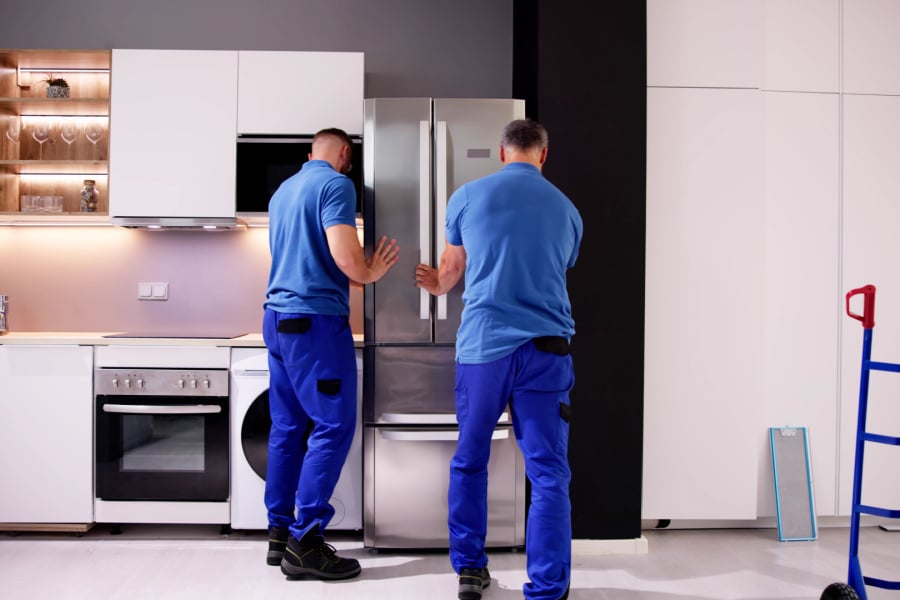The last mile is the crucial final step in delivery logistics. In short, it’s the conclusion of a shipment’s journey from seller to customer. The details of how this happens can be expensive and complex, which is why it has been a focus of retailers for many years. The public expects two-day shipping; and businesses that do so successfully have a tremendous competitive advantage.
The standard bearer is, not surprisingly, Amazon. It uses a combination of its own fleet and third-party services to conquer the last mile. Other retailers do their best to compete by establishing smaller, more numerous distribution centers closer to metropolitan areas, then using USPS, FedEx, UPS, and local couriers to make the final deliveries.
Let’s walk through why last mile logistics are critical to providing a seamless customer experience.
How the last mile impacts customers
Creating positive customer experiences is always a top priority for businesses. Deliver a great one and you benefit from positive word of mouth and social media traffic, plus glowing online reviews -- and, of course, repeat customers. Deliver a poor customer experience and you may lose customers along the way.
In fact, more than 15% of consumers will stop buying from a company that makes even one late delivery. Two or three late shipments drive that figure up to 55%. Of course, weather and traffic create obstacles, mistakes happen, and deliveries sometimes arrive late despite the best-laid plans. Doing all you can to minimize disruptions is key to customer satisfaction and retention.
Did you know it only takes one bad experience for one-third of your customers to take their business elsewhere? They don’t know or care if it’s the fault of a third-party vendor over which you have no control. For brands, this means ensuring their last-mile delivery solution is as efficient and effective as possible is a surefire way to build a community of loyal, repeat shoppers.
Thankfully, there are strategies that retailers can implement to minimize hiccups and provide remarkable customer experiences.
Strategy one: Communicate with customers
The following practices help strengthen customer relationships, even amid delivery challenges:
1. Reach out in advance. If you foresee potential slowdowns, such as supply chain bottlenecks or a busy holiday season, give customers clear ordering deadlines to receive on-time deliveries.
2. Stay connected throughout the delivery process. Provide detailed wait times when customers order and keep them updated when shipments go out with easy tools to track their progress. If they hear nothing beyond an order confirmation email, they may contact your company, resulting in frustration for them and more work for your team. Make sure to develop a clear post-purchase communication strategy to keep your customers in the loop.
3. Have a support team ready. Make it clear how consumers can get in touch when they need help: phone, text, email, AI or live chat, social media, or any other platform. Say you’re sorry if things go awry. Empower your support team to offer discounts or free future orders without supervisor approval.
The last mile can be challenging, but it’s far easier to navigate with proactive and transparent customer communication.
Strategy two: Invest in advanced technology
As mentioned above, customers want to easily track an order’s progress. In fact, nearly three-quarters of them consider it “very important” and almost all of them appreciate being notified about issues with their delivery. This improves satisfaction and lowers costs by reducing dissatisfied customer calls or live chats, allowing your support team to be more productive.
Automation makes this happen. Used effectively, delivery alerts arrive seamlessly and customers can reach a live person online. This ensures that customers can always depend on having an experience that reflects your brand ideals. Last-mile experts like Ryder provide these tools and more for customers to ship, track, and receive with confidence.
Strategy three: Provide self-service scheduling
Allowing customers to schedule their own delivery gives them control and a stake in the shipping process. A straightforward text or email notification allows them to quickly set a delivery schedule and track it in real time. Here are the key benefits this provides:
- Fewer scheduling delays
- Lower failed delivery rates due to incorrect shipping addresses
- More accurate delivery window estimates
- More knowledgeable customers with mobile notifications
Self-service scheduling helps companies rise above the crowd with reliable last-mile deliveries while creating more loyal, informed customers.
Strategy four: Ask for feedback
Customers want to share their experiences. When you provide that opportunity, you will improve their current and future encounters with your business. Ninety-eight percent of customers consult online reviews, and 69% feel more confident working with a company that has positive reviews.
Online reviews aren’t the only way to get feedback. Consider sending follow-up texts or emails with survey links, interviewing customers about their experiences, and providing incentives for feedback, such as discounts, gift cards, or rewards club points.
Customer feedback shines a light on what changes could optimize your last mile operations. Don’t hesitate to ask -- they’ll almost certainly be inclined to answer.




